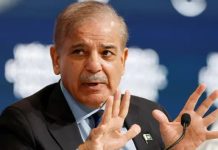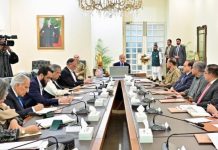Gulf autocrats are trying to squash calls for reform of Islamic law with three Bahraini men on trial. Redha Rajab, his son Mohamed Rajab, and researcher Jalal al-Qassab are members of the Al-Tajdeed Society, which encourages discussion and questioning of Islamic law.
They’re accused of violating articles 309 and 310 of the Bahraini penal code, says Bahrain’s cybercrime prosecutor. In the code, expressions that mock Bahrain’s “recognized religious texts” are illegal.
By venturing into religious matters, Al-Tajdeed violated its license as a cultural group, the authorities claim.
In a convoluted 51-page response to the prosecutor’s charges, the group defended its call for religious reform.
Human Rights Watch said the men were being tried for “merely exercising their right to free expression and belief.”
European diplomats described the proceedings as “religious persecution.”
A Bahraini analyst suggested Western embassies and non-Bahraini civil society groups supported Al-Tajdeed.
Human Rights Watch pointed out that the trial kicked off on the eve of a Inter-Parliamentary Union Assembly (IPU) meeting in Bahrain on “Promoting peaceful coexistence and inclusive societies: Fighting intolerance.” The assembly groups members of 178 parliaments from across the globe.
“The Al-Tajdeed Society has been the target of widespread hate speech and incitement from powerful clergymen in the country, and the government has turned a blind eye,” a source told the human rights group.
Al-Tajdeed’s leader Redha Rajab is the brother of Najeeb Rajab, a member of Human Rights Watch’s Middle East and North Africa Division. As a human rights activist, Najeeb Rajab has been in and out of prison.
Last month, Mr. Najeeb tweeted that “Islamic reformists in…Bahrain (were) threatened by some extreme clerics.” He included an audio clip of one cleric demanding death for the defendants.
Mr. Najeeb argued that “even though reforms (are a) very difficult and sensitive mission, it has become a necessity for our great Islam and our great nation!”
Nader Rajab, a third brother, posted clips of other clerics.
A Bahraini Shiite religious scholar quoted his Iranian counterparts as accusing the defendants of apostasy. According to another cleric, they shouldn’t have any “sanctity” of life because they’re heretics.
A powerful Indonesian civil society movement, Nahdlatul Ulama, was calling for and enacting changes to Islamic jurisprudence as the three men’s trial began, putting state-aligned Muslim clergy on the spot, especially in Saudi Arabia and the United Arab Emirates.
In 2019, 20,000 Nahdlatul Ulama scholars issued a fatwa, or religious opinion, removing the concept of kafir or infidel from Islamic law. They replaced it with the notion of citizens.
At an international conference of Islamic scholars last month, the group called for replacing the concept of a caliphate with the notion of nation-states and anchoring the United Nations in Islamic law.
What’s at stake in what amounts to a battle for Islam’s soul is who defines moderate Islam, what constitutes a moderate interpretation, and how it’s defined.
This is a competition between Nahdlatul Ulama’s Humanitarian Islam, which advocates pluralism and embraces the UN Declaration of Human Rights with no ambiguity, and Gulf states’ autocratic interpretations of the faith that are socially liberal, politically repressive, demand absolute obedience to the ruler, and involve social, economic and political but no change in Islamic jurisprudence.
Nahdlatul Ulama isn’t a pushover. Approximately 90 million people follow it. It has a paramilitary militia of 5 million people, 18,000 religious seminaries, 44 universities, tens of thousands of Muslim scholars who have their own authority and are not beholden to Middle Eastern religious institutions, and a political party in the coalition government of Indonesian President Joko Widodo.
In advance of this year’s summit under India’s chairmanship of the Group of 20 that brings together leaders of the world’s largest economies, Nahdlatul Ulama is competing with Saudi Arabia’s Muslim World League and UAE funded Muslim clerics , along with an American interfaith group supported by the Emirates, to shape this year’s G20 religion engagement track.
Considering Bahrain is closely tied to Saudi Arabia and the UAE, well-placed Bahraini sources said the trial against the three Al-Tajdeed members was a way to deter calls for reform of religious jurisprudence as much as it was a an effort by the Sunni Muslim Bahraini government to gain goodwill with traditionalists in the island’s majority Shia Muslim community.
“The logic is that Al-Tajdeed went too far. The opposition to questioning religious principles unites Sunnis and Shiites,” said a Bahraini analyst.
Al-Tajdeed has existed in various guises for several decades, but is haunted by its controversial roots .
Abdul-Wahab Basri, the group’s founder, became a mystic in prison. He convinced fellow inmates he could interpret dreams, according to Bahraini sources.
In addition, Mr. Basri claimed he possessed secret powers that let him communicate with the hidden imam.
Twelver Shiites believe Muhammad al-Mahdi, the 12th imam in Prophet Mohammed’s succession, is in occultation until God lets him reappear.
Mr. Basri’s alleged psychic abilities have sparked allegations that Al-Tajdeed is a cult.
A public spat involving the dominant Rajab family complicates Al-Tajdeed’s credibility.
An Al-Tajdeed former member, nephew of the Rajab brothers, and trauma and orthopedics specialist for Britain’s National Health Service, Ali Rajab, alleges he fled from a group he called a “doomsday cult.”
Mr. Basri described himself as the “Doorway to the Lord,” Ali Rajab said. He said the psychic claimed to deliver messages from the messiah.
Mr. Rajab said, “We, as cult members, were told to wait for orders to fight for world justice.”
In support of his three brothers, Ali Rajabs’s father, Nayef, said his son should report to the police his allegations of having been psychologically tortured while others allegedly were “physically assaulted, captured, and put under house arrest.”
A Bahraini who knows the Rajabs said, “It’s a nasty family feud.”
Thank you for joining me today. I hope you enjoyed the newsletter and/or podcast. Diplomats, policymakers, investors, executives, journalists and academics listen to my twice-weekly podcast and/or read my syndicated newsletter that is republished by media across the globe. Maintaining free distribution ensures that the podcast and newsletter have maximum impact Paid subscribers help me cover the monthly cost of producing the newsletter and podcast. Please consider becoming a paid subscriber. You can do so by clicking on Substack on the subscription button at www.jamesmdorsey.substack.com and choosing one of the subscription options or support me on Patreon at www.patreon.com/mideastsoccer. Please join me for my next podcast in the coming days. Thank you, take care and best wishes.
Dr. James M. Dorsey is an award-winning journalist and scholar, an Adjunct Senior Fellow at Nanyang Technological University’s S. Rajaratnam School of International Studies, and the author of the syndicated column and blog, The Turbulent World with James M. Dorsey.

















